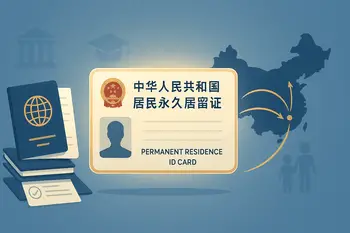
Living and working in China as a foreigner presents unique challenges and opportunities, including navigating the local tax system.
Understanding which expenses you can deduct can significantly improve your financial situation and ensure compliance with Chinese tax laws.
This guide provides a detailed overview of deductible expenses for expats, practical examples, and tips to maximize your tax benefits.
Understanding the Chinese Tax System
China’s tax system has undergone several reforms in recent years, making it essential for expats to stay informed.
Here are the basics:
- Tax Year: The tax year in China runs from January 1 to December 31.
- Individual Income Tax (IIT): Applies to income from wages, salaries, bonuses, and other forms of compensation. It operates on a progressive scale, with rates ranging from 3% to 45%.
- Tax Residency: Foreigners who stay in China for 183 days or more in a calendar year are considered tax residents and are subject to IIT on their worldwide income. Non-residents are taxed only on income earned in China.
For more details, refer to the State Taxation Administration of China (STA).
Key Deductible Expenses for Foreigners
Here’s a breakdown of the main expenses that foreigners in China can deduct, along with practical examples and documentation requirements.
1. Housing Rent Allowance
Housing rent is one of the most significant expenses for expats, and it can be deducted if your employer provides a tax-free housing allowance.
- Requirements:
- A legitimate rental agreement.
- Official rental invoices (fapiaos) from your landlord.
- Limits: The allowance must not exceed a reasonable market rate and should be specified in your employment contract.
- Example: If your monthly rent is ¥10,000 and your employer provides a housing allowance, you can deduct the full amount, provided you have the required documentation.
Tip: If your landlord refuses to issue a fapiao, you may not be able to claim the deduction. Negotiate this upfront when signing the rental agreement.
2. Children’s Education Expenses
Expats with children studying in China can deduct tuition fees for primary, secondary, and higher education at recognized institutions.
- Requirements:
- Official receipts or invoices from the educational institution.
- Proof of enrollment and payment.
- Example: If you pay ¥50,000 annually for your child’s tuition, this amount can be deducted from your taxable income.
Note: This deduction applies only to education expenses incurred in China.
3. Language Training and Professional Development
Expenses for language training or professional development related to your job are deductible.
- Eligible Expenses:
- Tuition fees for Mandarin classes or job-related courses.
- Costs for books and study materials.
- Example: If you spend ¥8,000 on a Mandarin course to improve workplace communication, you can deduct this amount, provided you have receipts.
Tip: Ensure the training is job-related and keep all documentation.
4. Medical Expenses
Certain medical expenses are deductible, including:
- Eligible Expenses:
- Medical insurance premiums paid by your employer.
- Out-of-pocket medical expenses not covered by insurance, such as co-payments and deductibles.
- Example: If you pay ¥5,000 in co-payments for a medical procedure, this amount can be deducted.
Note: Keep all medical bills and receipts for your records.
5. Contributions to Social Security and Provident Funds
Foreigners who contribute to China’s social security system can deduct these contributions, including:
- Basic pension insurance.
- Basic medical insurance.
- Unemployment insurance.
- Work-related injury insurance.
- Maternity insurance.
- Contributions to the Housing Provident Fund (HPF).
Example: If your monthly contribution to social security is ¥2,000, this amount is deductible.
Tip: Check with your employer to ensure contributions are accurately reported.
6. Charitable Donations
Donations to approved charitable organizations in China are deductible up to 30% of your taxable income.
- Requirements:
- Official donation receipts from the charity.
- Proof that the organization is approved by tax authorities.
- Example: If you donate ¥10,000 to a registered charity, you can deduct this amount, provided it does not exceed 30% of your taxable income.
For a list of approved charities, visit the Ministry of Civil Affairs of China.
Steps to Claiming Deductions
- Gather Documentation: Collect all necessary receipts, invoices, and official fapiaos to substantiate your claims.
- Complete the Tax Declaration Form: Ensure all deductions are accurately listed on the Individual Income Tax Declaration Form.
- Submit to Tax Authorities: Submit your completed form and supporting documents to local tax authorities.
- Consult a Tax Professional: Consider consulting a tax professional specializing in expat taxes to ensure compliance and maximize your deductions.
Tip: Some employers handle tax filings on behalf of their employees. Confirm with your HR department if this applies to you.
Common Mistakes to Avoid
- Missing Documentation: Without proper receipts or fapiaos, your deduction claims may be denied.
- Incorrect Information: Double-check your tax declaration form for accuracy to avoid delays or rejections.
- Exceeding Allowable Limits: Be aware of deduction limits, such as for charitable donations and housing allowances.
- Ignoring Updates: Stay informed about changes in tax laws and regulations that may affect your deductions.
Real-Life Example: Tax Savings for an Expat
Let’s say you’re an expat earning ¥500,000 annually in China.
Here’s how deductions could reduce your taxable income:
- Housing Rent Allowance: ¥120,000 (¥10,000/month).
- Children’s Education: ¥50,000.
- Social Security Contributions: ¥24,000.
- Charitable Donations: ¥10,000.
Total Deductions: ¥204,000.
Taxable Income: ¥500,000 – ¥204,000 = ¥296,000.
By claiming these deductions, you significantly reduce your taxable income and save on taxes.
Updated Information Disclaimer
Tax laws in China change frequently. The information in this guide is accurate as of January 2025, but we recommend verifying details with the State Taxation Administration of China (STA) or consulting a tax professional.
Conclusion
Understanding deductible expenses can greatly enhance your financial situation as an expat in China.
From housing rent and children’s education to language training and charitable donations, there are several ways to reduce your taxable income.
By staying informed, keeping accurate records, and consulting tax professionals, you can ensure compliance with Chinese tax laws and maximize your deductions.
For more information, visit the State Taxation Administration of China (STA) or consult a qualified tax advisor.


